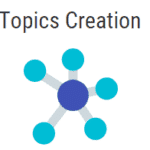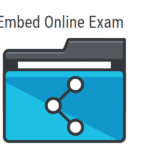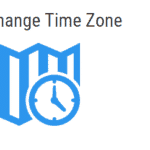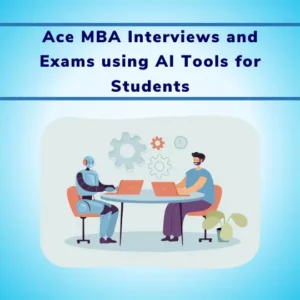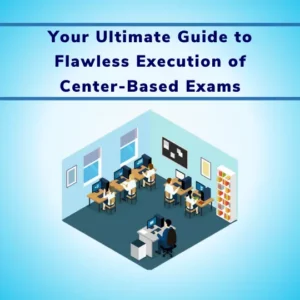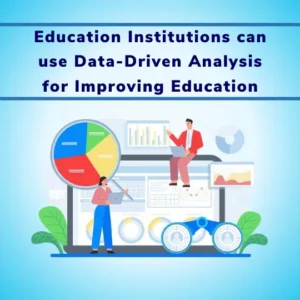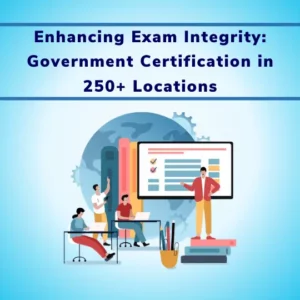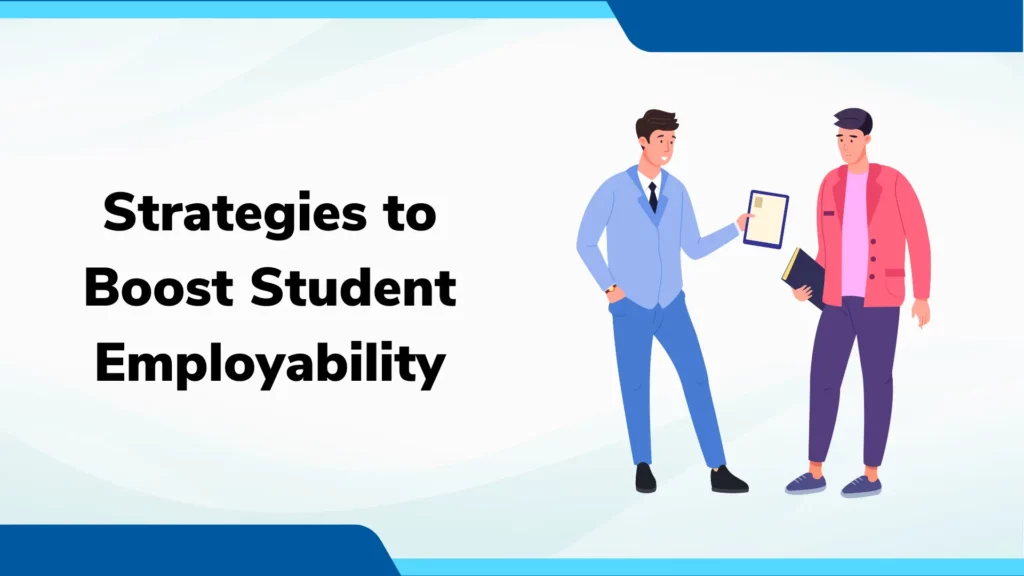
Article Contents
Introduction
In today’s competitive job market, students’ employability holds the utmost importance. As companies seek candidates with a strong skill set and practical knowledge, the need to enhance student employability for campus placements has never been more crucial.
With the demand for skilled employees on the rise, educational institutions must take proactive steps to equip their students with the right tools, knowledge and confidence to excel in hiring interviews and assessments.
Various sectors in India are projected to experience significant growth, thereby creating numerous job opportunities. For instance, the retail market is expected to reach $1.5 trillion by 2030, adding over 25 million new jobs.
Similarly, the manufacturing sector, crucial for India’s GDP, could contribute over $500 billion to the global economy by 2030, highlighting the importance of indigenization and local sourcing efforts.
The healthcare sector also presents a substantial opportunity, with the potential to generate $774 billion in revenue and create 12 million new jobs by 2030.
These sectors underline the need for students to align their skills with the demands of these growing industries
In this blog, we will shed light on various aspects related to increasing the employability of students.
4 Strategies to Prepare Students for Success
1. Preparing Students for Success: Enhancing employability through professional development programs
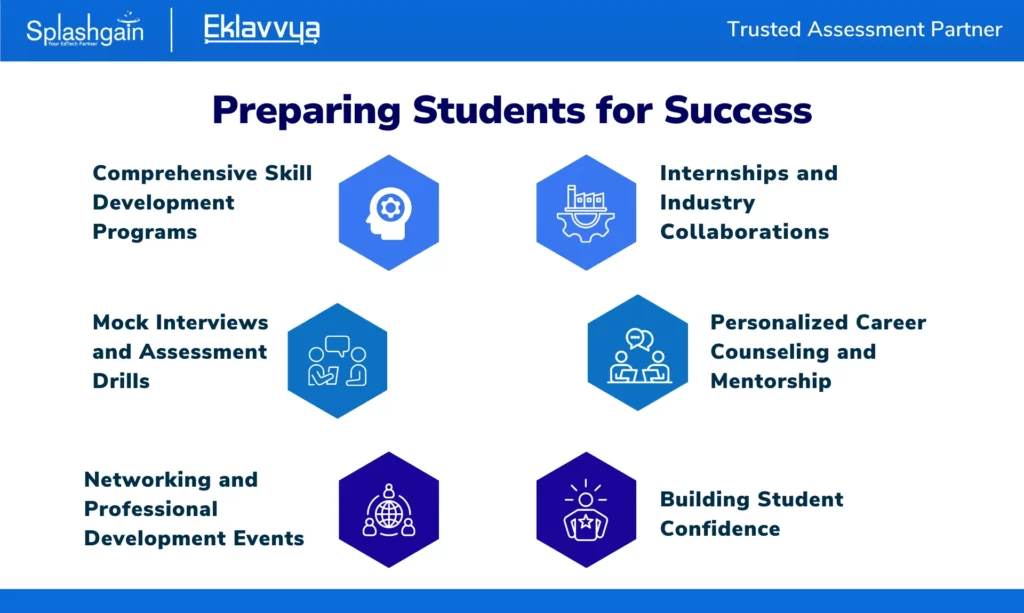
a. Comprehensive Skill Development Programs
To enhance employability, educational institutions should design and implement comprehensive skill development programs. These programs can focus on areas such as communication, critical thinking, problem-solving, and industry-specific technical skills. Providing a wide variety of skill-building opportunities allows students to align their capabilities more effectively with the job market’s demands.
b. Internships and Industry Collaborations
Encouraging students to participate in internships and fostering collaborations with industries can significantly improve their employability.
47% of employers consider internships as the most important factor when deciding whether to hire a candidate.
Source
Real-world work experiences through internships provide students with practical exposure and a chance to apply their knowledge in a professional environment. Industry collaborations also enable students to understand current industry trends and requirements, making them more attractive to potential employers.
c. Mock Interviews and Assessment Drills
Organizing mock interviews and assessment drills can help students to prepare for campus placements. Students can gain valuable insights into their strengths and weaknesses by simulating real interview scenarios and evaluation processes. Constructive feedback from experienced professionals or faculty can help students refine their interview techniques and build confidence in the hiring process.
d. Personalized Career Counseling and Mentorship
Providing personalized career counseling and mentorship services is crucial in enhancing student employability. Career counselors can guide students in identifying their strengths, interests, and career aspirations, helping them make informed decisions about their career paths.
Additionally, mentorship programs can connect students with industry professionals who can offer guidance and advice, inspiring students to set achievable career goals and take proactive steps towards achieving them.
e. Networking and Professional Development Events
Encouraging students to participate in networking events and professional workshops to connect with industry professionals can help build valuable relationships and gain insights into industry trends.
85% of jobs are filled through networking.
Source
Attending on-campus events with alumni, recruiters, and experts can offer exposure to potential job prospects, thus enhancing employability. Emphasizing networking and professional development promotes a deeper understanding of chosen fields and opens doors to new opportunities in the job market.
f. Building Student Confidence
To build student confidence, educational institutions should recognize and nurture their strengths, empowering them to embrace their capabilities. Encouraging active participation in class discussions, presentations, and extracurricular activities fosters a sense of ownership and confidence in students’ abilities.
Celebrating students’ achievements, regardless of size, reinforces their self-belief, motivating them to strive for success and fostering a growth mindset that empowers them to overcome challenges with determination.
By adopting these proactive measures, educational institutions can better prepare students for success in campus placements, significantly improving their employability prospects in the competitive job market.
2. Practical Knowledge Matters: Equipping students with hands-on experience

a. Real-World Application
Practical knowledge goes beyond theoretical concepts, emphasizing the application of skills in real-world scenarios. Educational institutions must design practical-oriented curricula to enable students to bridge the gap between theory and practice.
b. Internships and Industry Collaborations
Encouraging students to participate in internships and fostering collaborations with industries provide hands-on experience. Working in real business environments allows students to apply their knowledge, gain insights into industry practices, and develop relevant skills.
70% of employers believe that experiential learning, such as internships, co-op programs, and apprenticeships, are important for students to gain before graduation.
Source
c. Lab Sessions and Workshops
Incorporating regular lab sessions and workshops in the curriculum can facilitate hands-on learning. These interactive sessions offer students opportunities to experiment, troubleshoot, and gain proficiency in using various tools and technologies.
d. Projects and Case Studies
Assigning practical projects and case studies to students challenges them to solve real problems, fostering critical thinking and problem-solving skills. By grappling with practical issues, students develop a deeper understanding of their subject matter.
e. Experiential Learning Opportunities
Providing experiential learning opportunities such as simulations, field visits, and practical demonstrations further enhances students’ practical knowledge. These activities allow students to experience real-life scenarios, fostering adaptability and resourcefulness.
By prioritizing practical knowledge and offering hands-on experiences, educational institutions can prepare students to excel in their careers and meet the demands of a dynamic job market.
3. Testing the Waters: Understanding the types of evaluations companies conduct
Understanding the different evaluation techniques is vital for educational institutions to prepare students effectively.
Around 70% of employers use pre-employment assessments to evaluate candidates.
Source
By providing comprehensive preparation for aptitude tests, communication assessments, psychometric evaluations, and coding-specific tests, educational institutions can better equip students for success in the competitive job market.
Students can learn valuable strategies and techniques to excel in each assessment type, giving them a competitive edge in their job search. Moreover, staying updated on the latest industry trends and employer preferences in evaluation methods allows educational institutions to tailor their curriculum and training programs to meet the ever-changing demands of the job market.
a. Practical Knowledge Focus
Implementing practice-oriented online exams is a viable strategy to prepare students for the actual evaluations. These exams provide valuable feedback and identify areas where students need improvement, enabling them to refine their skills and approach.
Additionally, inviting alumni members to interact with students and conduct mock interview rounds can offer real-world insights into corporate expectations and necessary practical knowledge, further enhancing students’ preparedness for the job market. By focusing on practical knowledge and experiential learning, educational institutions can empower students with the confidence and proficiency needed to excel in their future careers.
b. Assessing Communication Skills
Communication skills are pivotal in the hiring process, and online audio-based tests are valuable tools to accurately assess students’ verbal proficiency, including pronunciation, fluency, and articulation.
Over 50% of employers say that communication skills are the most important skill for employees to have.
Source
Identifying areas for improvement through these tests enables educational institutions to tailor training effectively. Additionally, the remote accessibility and convenience of online assessments allow students to participate from any location, ensuring efficient evaluations without the need for physical presence.
The objective and unbiased evaluation provided by these tests, facilitated by the automated assessment process, ensures consistent and fair grading, minimizing the influence of subjective biases. Utilizing online audio-based tests empowers educational institutions to enhance students’ communication skills and significantly increase their employability.
Around 80% of employers believe that soft skills are just as important as hard skills.
Source
By utilizing online audio-based tests for communication skills assessment, educational institutions can gain valuable insights into students’ verbal abilities and offer targeted support to enhance their communication prowess.

c. Leveraging Alumni Insights
Inviting alumni members to interact with students and conduct mock interview rounds can offer valuable insights into corporate expectations and necessary practical knowledge. Alumni can share their experiences and tips, inspiring students to perform better and boosting their confidence in the recruitment process.
Mock interview rounds with alumni experts offer valuable real-world perspectives to students, providing insights into the corporate world’s expectations and challenges. During these sessions, alumni provide constructive feedback, helping students refine interview techniques and communication skills.
As mentors, alumni offer career guidance and tips for advancement, inspiring students and instilling confidence in their abilities. The combination of real-world experiences, feedback, and mentorship creates a holistic approach to preparing students for successful careers. By learning from alumni experts during mock interview rounds, students can gain practical knowledge, refine their interview skills, and receive valuable guidance, all of which contribute to their overall professional development.
By understanding and implementing these evaluation methods, educational institutions can better equip their students for placements, enhancing their employability and paving the way for a successful career.
4. Streamlined Evaluation with online assessment platforms: Exploring an online assessment platform for comprehensive testing
In the digital age, online assessment platforms like Eklavvya have revolutionized the evaluation process, offering educational institutions a seamless and efficient way to conduct comprehensive testing.
Eklavvya provides a wide range of features and tools that streamline the assessment process, making it easier for educators to assess students’ aptitude test performance, coding abilities, and communication skills. With just a few clicks, instructors can create and customize various types of assessments, ensuring they align perfectly with the learning objectives and course content.
One of the key benefits of using Eklavvya is the flexibility it offers to students and educators alike. Students can take assessments from the comfort of their homes or any location with an internet connection, eliminating the need for physical test centers. On the other hand, educators can monitor and evaluate student performance in real time, allowing for quick and efficient feedback.

The platform’s advanced analytics and reporting capabilities provide valuable insights into students’ strengths and weaknesses, enabling educators to tailor their teaching methodologies and support students’ individual learning needs effectively.
Moreover, Eklavvya ensures a secure and unbiased evaluation process, mitigating the risk of cheating or malpractices. Its robust anti-cheating features and plagiarism checks help maintain the integrity of the assessments, providing a fair and credible evaluation for all students.
By embracing online assessment platforms like Eklavvya, educational institutions can optimize the evaluation process, save valuable time and resources, and provide students with an engaging and convenient testing experience.
Employability refers to the set of skills, knowledge, and attributes that make an individual desirable and capable of securing and maintaining employment. It is crucial for students because a strong employability profile enhances their chances of finding suitable job opportunities and building their careers. Employability equips students with the necessary tools to adapt to the evolving job market and demonstrate their value to employers. By developing employability skills, students can build a solid foundation for a successful and fulfilling future.
Education institutes can improve student employability by focusing on practical skill development by providing internship opportunities and personalized career guidance. By incorporating hands-on learning experiences, internships, and mentorship programs, educational institutions can help students gain the necessary knowledge and expertise demanded by the job market, thus increasing their employability prospects and preparing them for successful careers.
Different industries evaluate candidates during the hiring process through various methods such as interviews, aptitude tests, technical assessments, group discussions, and case studies. The evaluation process is tailored to each industry’s specific requirements and may include both technical expertise and soft skills assessment to ensure candidates possess the necessary qualifications. Companies use these evaluation techniques to identify the most suitable candidates who can contribute effectively to their organization’s success.
Students can showcase their skills and abilities to potential employers through various means such as creating a well-crafted resume that highlights relevant experiences and accomplishments, developing an impressive portfolio or project showcase, and actively engaging in networking events and professional platforms. Additionally, participating in internships, volunteering, or freelancing allows students to gain practical experience and demonstrate their capabilities in real-world scenarios.


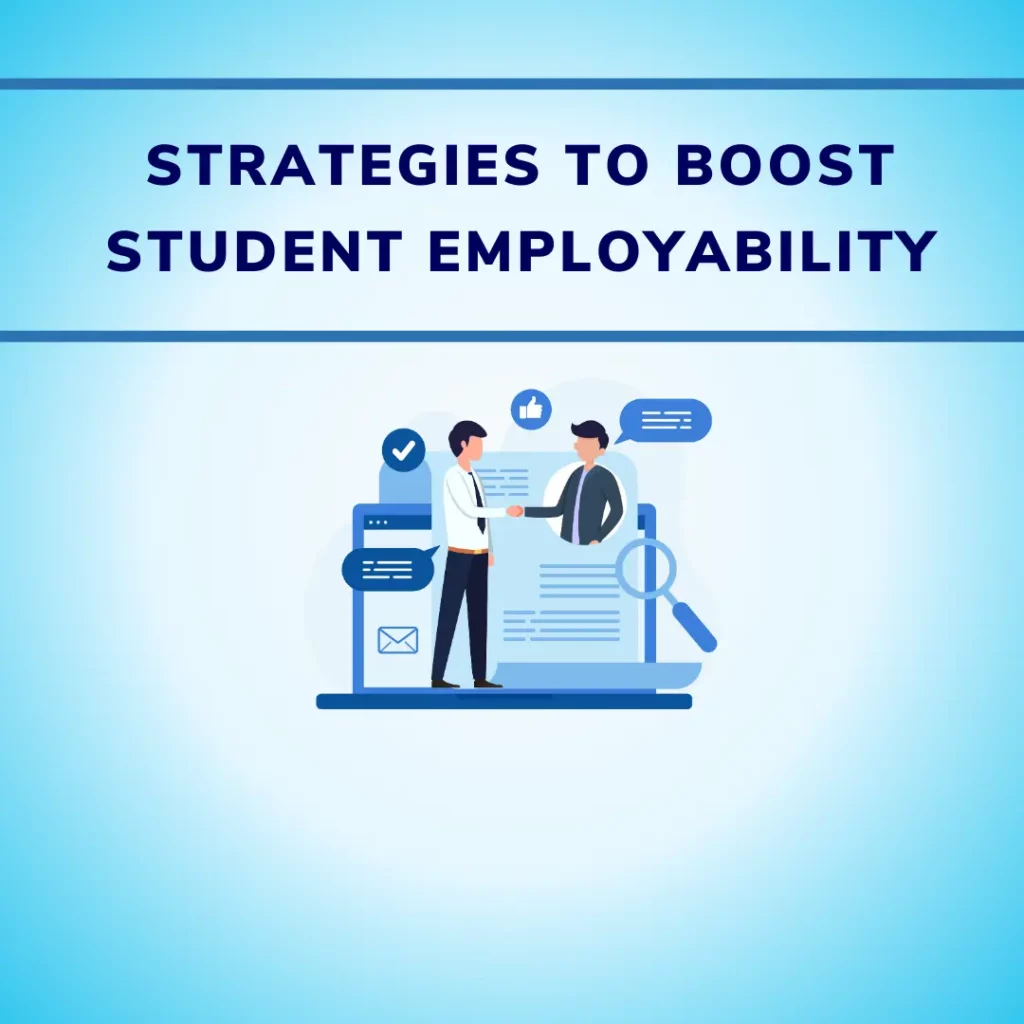
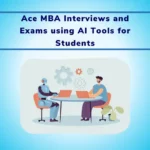
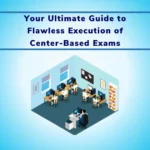
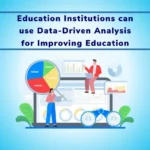
![How Government-Led Exams at 250+ Locations Are Setting New Standards of Integrity [Case Study]](https://www.eklavvya.com/blog/wp-content/uploads/2024/04/Enhancing-Exam-Integrity-Government-Certification-in-250-Locations-150x150.webp)
